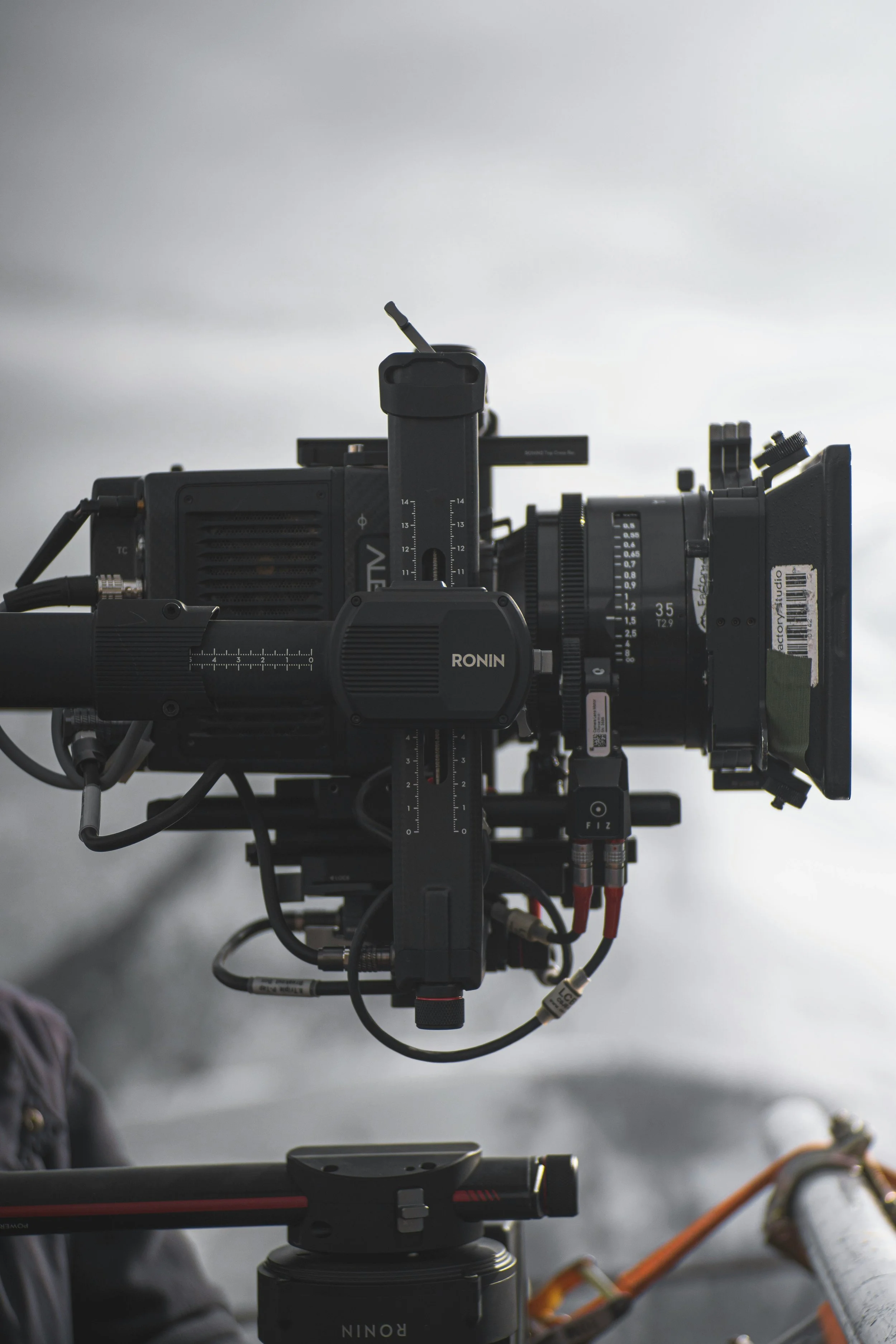AI and Lens Technology: The Intersection of Innovation and Cinematic Creativity
Framework Films High-End Lens Manufacturers Guide
Decoding the Differentiators Among Top Cinema Lens Manufacturers
Mastering the Art of Lens Selection: Strategies for Diverse Productions
Revolutionizing Camera Lenses: How New Tech is Shaping the Future of Film Production
AI and Lens Technology: The Intersection of Innovation and Cinematic Creativity
Introduction
Context of AI in Film Production
Artificial intelligence has made its way into nearly every facet of the film industry, from scriptwriting and post-production to visual effects (VFX) and cinematography. AI is transforming filmmaking by automating complex tasks, enhancing creative possibilities, and streamlining production workflows. In particular, high-end cinema lenses—essential tools in capturing high-quality footage—are undergoing a revolutionary transformation thanks to AI. Precision, speed, and flexibility are now at the forefront, and these technological advancements are offering filmmakers new ways to execute their creative visions. From automating lens calibration to real-time autofocus and predictive maintenance, AI is not only improving the quality of lenses but also providing filmmakers with new tools to shape their stories more effectively.
Purpose of the Article
This article explores the growing role of AI in reshaping the high-end cinema lens market. We’ll examine how AI technologies are influencing the development of lenses, from their initial design to their use on set. Additionally, we will discuss the implications for filmmakers, lens manufacturers, and the technology behind lenses, focusing on how AI enhances filmmaking efficiency and creativity. By diving into these advancements, we aim to showcase how AI is transforming lens technology and discuss what the future may hold for the industry.
Key Objective
At Framework Films, we pride ourselves on staying ahead of the curve with the latest trends and technologies in the production space. Through this article, we will provide insights into how AI is affecting the lens market, making complex processes more efficient and helping filmmakers create visually stunning content with greater precision and ease. As thought leaders in the creative marketing and specialty production space, Framework Films continues to lead the charge in embracing cutting-edge innovations like AI to elevate our production capabilities.
Current Impact of AI on High-End Lenses
AI-Assisted Lens Calibration
AI is revolutionizing the traditional methods of lens calibration, automating what was once a meticulous, time-consuming process. By employing sophisticated algorithms, AI systems can analyze lens performance and correct minor distortions in real time. This advancement ensures lenses maintain the highest levels of accuracy, particularly for complex setups that require precision, such as those used in Zeiss or Angénieux lenses. Additionally, AI-powered calibration systems continuously learn and adapt, allowing for faster and more efficient fine-tuning on set, saving filmmakers valuable time during production. These advancements reduce human error, ensuring that lenses are always performing at their peak, minimizing the need for recalibration mid-shoot and reducing costly delays.
AI-Powered Autofocus and Tracking
One of the most notable contributions of AI to cinematography is the development of faster and more intelligent autofocus systems. AI algorithms can now detect and track subjects with unparalleled precision, ensuring that the focus remains sharp even with complex depth-of-field transitions. This technology is especially useful for lenses with shallow depth of field, where focus can shift rapidly during action sequences. Panavision, for example, has integrated AI into their autofocus systems to enable real-time image analysis, improving subject tracking accuracy. The AI system predicts the movement of the subject and adjusts the focus instantaneously, ensuring that filmmakers can capture every moment in perfect clarity without worrying about manual adjustments. This results in smoother, more dynamic shots, even in fast-paced scenes.
Smart Lenses with Real-Time Metadata
Today’s lenses are becoming increasingly intelligent, equipped with sensors that provide real-time metadata, from focus distance to aperture and focal length. AI allows these lenses to interpret this data on the fly, enabling seamless integration with post-production workflows. Zeiss and Cooke Optics have embraced this technology, allowing filmmakers to collect critical lens data without additional manual input. This real-time metadata allows for more precise VFX integration, as editors have immediate access to the exact settings used on set, reducing the time spent correcting discrepancies during the editing process. These smart lenses are not just a convenience—they are a game-changer for enhancing the precision of VFX and improving the overall efficiency of post-production.
Future Applications of AI in Lens Technology
Predictive Lens Maintenance
In addition to improving lens performance, AI is also paving the way for predictive maintenance in high-end cinema lenses. Through data analysis and machine learning, AI can predict potential wear and tear in lenses, providing alerts to production teams when lenses are nearing the end of their lifespan or require servicing. This could significantly reduce unplanned downtime and prevent costly delays, allowing cinematographers to continue shooting without disruption. Furthermore, predictive maintenance helps extend the life of high-end lenses by allowing filmmakers to address issues before they escalate. For lens manufacturers like Leica and Atlas Lens, this means a greater understanding of how lenses perform under different shooting conditions, ensuring that they deliver consistent quality throughout their service life.
AI in Lens Design
AI is also shaping the future of lens design by automating simulations of how lenses will perform across different environments. This allows lens manufacturers to test and refine designs before producing physical prototypes, dramatically reducing the development time for new lenses. Vantage and Angénieux, for example, could leverage AI-driven simulations to predict how lenses will behave in various lighting conditions or at different focal lengths. This accelerates innovation and ensures that lenses are optimized for modern filmmaking needs, from high-resolution digital cinema to the dynamic demands of VR/AR content creation. AI’s ability to iterate and predict performance has the potential to unlock new creative possibilities for filmmakers, enabling lens manufacturers to stay ahead of the curve.
AI in Post-Production Workflow Integration
Post-production workflows are also benefiting from AI, particularly when it comes to integrating lens data into the editing and VFX processes. AI-driven tools can automatically match lens characteristics, such as distortion, chromatic aberration, or aperture shape, with post-production software, creating a seamless bridge between shooting and editing. Filmmakers can now adjust lens effects during the editing process with a higher degree of accuracy and speed. For example, Fujifilm and Atlas Lens have been exploring how AI can assist in making real-time adjustments to lens footage, ensuring that creative intent is maintained from set to screen. With AI tools that automatically align lens data with VFX, the post-production process becomes faster and more streamlined, allowing for more creative experimentation without sacrificing quality.
AI in the Creative Process: Changing Filmmakers’ Approach to Lens Selection
Lens Selection Based on AI-Driven Insights
One of the most transformative applications of AI in the filmmaking process is its ability to assist filmmakers in selecting the optimal lens for their creative goals. Through AI, filmmakers can input key variables such as shooting location, lighting conditions, and specific artistic objectives, and receive tailored recommendations on which lenses will best achieve their vision. By analyzing historical data from previous shoots, AI systems can suggest lenses that have produced the most effective results under similar circumstances. This guidance can be particularly valuable when choosing between different lens types, focal lengths, and even lens brands like Cooke Optics or Arri, who are at the forefront of offering customized lens solutions. With AI helping filmmakers choose the right tool for the job, it reduces decision fatigue, accelerates pre-production planning, and provides greater creative flexibility.
AI-Assisted Creative Exploration
AI isn’t just about optimizing technical performance; it’s also enabling new creative possibilities in lens selection. Through advanced simulations, AI can model how different lenses will interact with light, color, and depth before a filmmaker ever steps on set. This means directors and directors of photography (DPs) can explore the look and feel of various lenses in pre-production, experimenting with different options to ensure the final selection aligns with their vision. AI can simulate lens effects like bokeh, distortion, and chromatic aberration, giving filmmakers a virtual "test drive" of different lenses without needing to physically shoot with them first. Moreover, AI offers new opportunities for experimental filmmaking, allowing creatives to push boundaries and test unconventional lens technologies to create unique visual storytelling experiences that might have once been impossible or prohibitively expensive.
AI and the Democratization of Lens Technology
Lower-Cost Solutions with AI Integration
AI is playing a key role in making high-end lens technology more accessible to emerging filmmakers. Historically, advanced lens systems required specialized knowledge and expertise to operate and maintain, which limited their availability to large production studios with substantial budgets. However, AI is now automating complex tasks like lens calibration, autofocus, and tracking, significantly reducing the need for expensive manual adjustments. As AI handles these technical processes, filmmakers—especially those with limited budgets—can access the same level of performance without the prohibitive costs. Companies like Fujifilm and Vantage are already leveraging AI to offer more cost-effective lens solutions without compromising quality, making high-end optics accessible to a wider range of creative professionals.
AI-Powered Lenses for Emerging Filmmakers
The integration of AI into lens technology also empowers smaller production houses and independent filmmakers by offering personalized, cost-effective solutions that meet their specific creative and budgetary needs. AI-driven services can now tailor lenses to suit a filmmaker’s requirements, enabling them to achieve professional-quality results without the hefty price tag. Independent filmmakers no longer need to choose between high performance and affordability. Instead, AI provides an affordable bridge that gives access to the latest lens technologies—like real-time tracking, calibration, and metadata collection—allowing them to compete at the highest level in the filmmaking industry. With AI making high-end lenses more accessible, the playing field for filmmakers is being leveled, giving smaller productions the ability to create the same cinematic impact as their larger counterparts.
Ethical Considerations and Limitations of AI in Lens Technology
Challenges in Replacing Human Expertise
While AI offers many advantages, there is an ongoing discussion about its limitations in fully replacing the nuanced understanding and artistry that human technicians bring to lens selection and cinematography. AI can automate tasks, but it doesn’t replace the intuition and creative expertise that a seasoned cinematographer or lens technician applies when making decisions about framing, composition, and style. The human touch is invaluable when it comes to interpreting complex visual cues, understanding the emotional context of a shot, and making decisions that transcend technical considerations. AI, while powerful, must be viewed as a complement to human expertise rather than a substitute for it.
Limitations of AI Calibration
One of the challenges AI faces in lens calibration is its inability to fully grasp the subtleties of a cinematographer’s artistic intentions. While AI can correct mechanical issues, it may not always interpret the specific creative vision of a shot, such as the subtle adjustments needed to achieve the desired mood or atmosphere. The complexity of artistic choices in cinematography—such as how a lens should capture light and texture—requires a depth of understanding that AI still struggles to replicate. As technology evolves, AI’s ability to assist in calibration will improve, but it will never fully replace the artistic judgment and decision-making that human expertise brings to the process.
Ethics of AI-Assisted Filmmaking
It’s essential to ensure that AI remains a tool to support filmmakers, not a replacement for their creativity and vision. The ethical debate surrounding AI in filmmaking revolves around maintaining a balance between technology and artistry. AI must be positioned as a valuable assistant in the filmmaking process, augmenting the creative work of cinematographers and directors, not taking over entirely. As AI continues to evolve, filmmakers will need to safeguard the authenticity and originality of their craft, ensuring that technology complements rather than diminishes the role of human ingenuity. By recognizing the potential of AI while respecting the importance of human creativity, the industry can harness the full power of both.
Conclusion
Recap of AI’s Impact on Lens Technology
In conclusion, AI is already making a profound impact on high-end cinema lenses, improving precision, speed, and creative flexibility in ways that were once unimaginable. From enhancing autofocus and lens calibration to enabling predictive maintenance and intelligent lens selection, AI is reshaping how lenses are used in film production. As the technology continues to advance, we can expect even more innovative applications that will further empower filmmakers and lens manufacturers alike. Whether streamlining workflows or unlocking new creative possibilities, AI is undoubtedly a driving force in the evolution of filmmaking technology.
At Framework Films, we are committed to staying ahead of the curve in adopting cutting-edge technologies that elevate our work and support our clients' creative goals. Our deep understanding of AI’s role in transforming the production process allows us to help filmmakers navigate the complex landscape of modern filmmaking tools, including the latest in AI-powered lens technologies. By embracing innovation, we position ourselves as thought leaders, ready to guide our clients through the ever-changing world of creative production.
If you're ready to take your filmmaking to the next level with AI-driven advancements in lens technology, Framework Films is here to help. Our team can guide you in integrating these innovations into your next project, ensuring that your vision is executed with the highest level of precision and creativity. Let’s collaborate to push the boundaries of what’s possible and bring your cinematic ideas to life with the power of AI.
We bring your communications objectives to life and push creative boundaries. For more, explore our client case studies.
Our expert team delivers impact beyond content, connect with us here.



